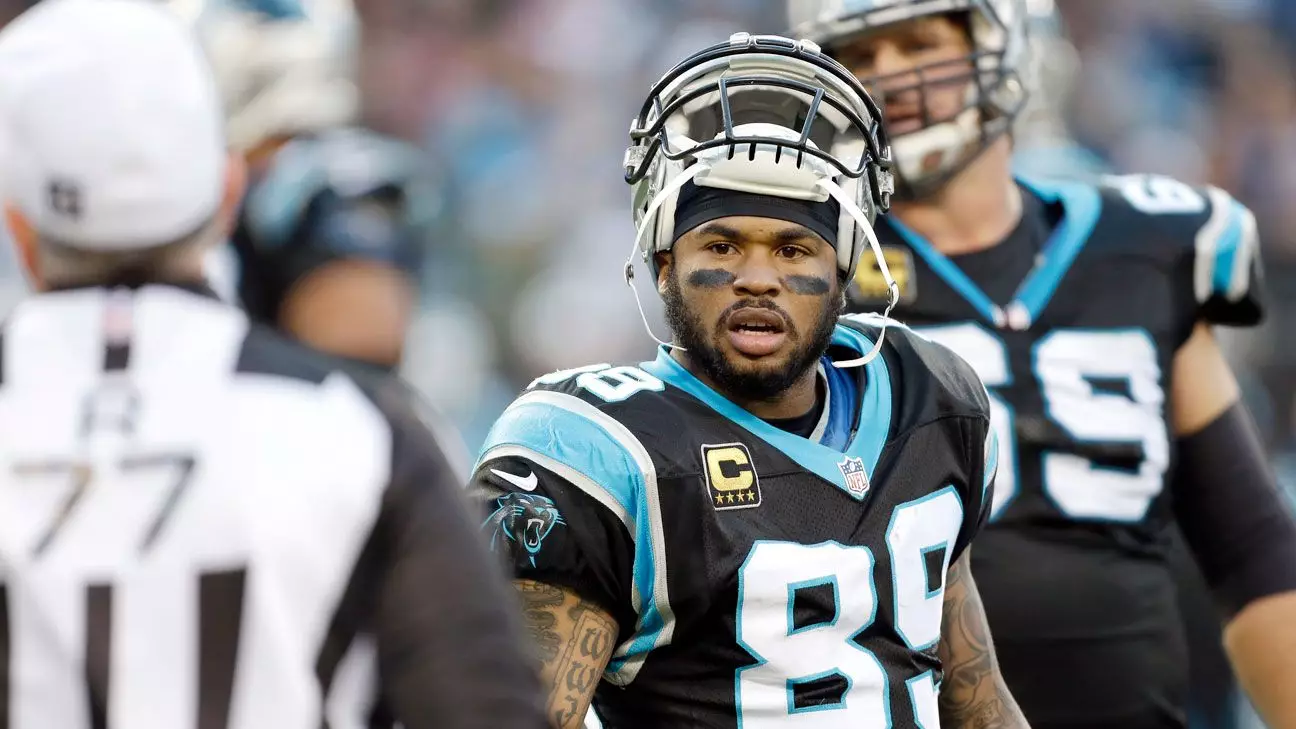In a landscape where football is not just a sport but a culture, the dynamics between players often create narratives that persist long after their careers. A recent interaction has reignited discussions within the Carolina Panthers’ community, as former wide receiver Steve Smith Sr. took issue with comments made by his ex-teammate, quarterback Cam Newton. Newton, on the podcast “The Travis Hunter Show”, proclaimed that when he joined the Panthers as the first overall pick in 2011, he found a locker room filled with “losers.” These remarks struck a chord with Smith, who was a significant figure in the franchise long before Newton arrived. Such a sentiment reveals not only the personal grievances but also speaks volumes about the evolving culture within sporting teams.
Newton’s Controversial Claims
Cam Newton’s comments came during a segment where he discussed the immense pressure placed on top draft picks, particularly emphasizing the pivotal role of quarterbacks in shaping a team’s success. While elucidating the challenges faced by young players like Travis Hunter, Newton did not shy away from labeling his predecessors as lacking a winning mentality. His description of the 2010 squad as a “locker room of losers” seems to stem from his frustration over the previous season’s dismal record of 2-14. Such statements, however, overlook the complexities of team dynamics and the myriad factors contributing to a team’s performance. By framing past teammates in a disparaging light, Newton risks alienating those who contributed to the franchise in significant ways.
Steve Smith’s fierce reaction to Newton’s comments reflects a profound sense of loyalty to his former teammates and a recognition of the shared struggles they endured. Using social media platform X (formerly Twitter), Smith expressed his dissatisfaction with Newton’s choice of words, emphasizing that a disparaging label applied to the entire locker room is both oversimplified and disrespectful. His response underscores the reality that team sports are about collective effort, and calling members of a team “losers” reduces their hard work and sacrifices to a single, dismissive characterization. Smith’s assertive stance illustrates the complex tapestry of player relationships, highlighting that the impacts of words can be far-reaching.
The dynamic between Steve Smith and Cam Newton during their three seasons together in Carolina was not always smooth sailing. Both players have fiery personalities, and it’s not uncommon for strong-minded athletes to clash at times. However, their paths are intertwined through pivotal moments in Panthers history. Newton’s impact on the franchise is undeniable. He transformed a struggling team into a competitive force, culminating in an MVP award and a Super Bowl appearance. Still, it’s crucial to recognize that this success was built on the efforts of many players—including Smith—who laid the groundwork before Newton’s arrival.
Newton’s portrayal seemingly undermines the contributions of those who faced the same challenges he did. The pain of defeat is often shared among teammates, and each player’s journey is intrinsic to the collective narrative. An attitude that seeks to place blame can overshadow the collaborative spirit that sports are supposed to embody.
As public figures, former athletes must navigate the repercussions of their words, aware that their narratives shape perceptions beyond the field. In a sport defined by camaraderie, Newton’s remarks serve as a reminder of the importance of respecting one’s teammates and recognizing the transformational journeys they undertake together. Smith’s defense of his former colleagues reinforces the message that, despite past victories or losses, the respect for those who share the uniform should always prevail.
In closing, while the dialogue between Newton and Smith reflects personal histories and individual experiences, it also opens a broader discussion about how language matters in the realm of sports. Respecting the contributions of all team members is essential for fostering a culture of unity and progress—elements that are crucial for any successful franchise. The Panthers’ legacy isn’t defined by one individual; it’s a collective story of perseverance, talent, and mutual respect.


Leave a Reply